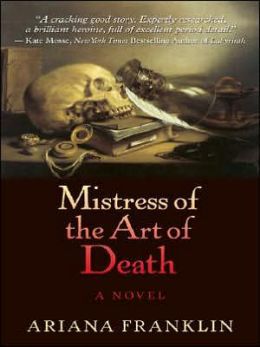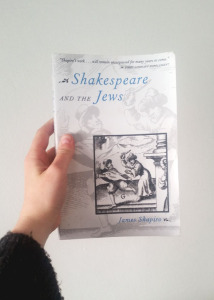 Adelia is a forensic pathologist, a doctor who studies corpses to discover the cause of death. Alone, this isn’t a shocking or particularly special characteristic. When you add “in 12th-century England” it becomes much, much more interesting. Adelia trained to become a doctor in Salerno, Italy, a quite progressive town for the mid-1100’s, not only because the people who live there know so much about medicine, but because they trained a female doctor. Adelia is even more of an oddity because her particular field of study – that of death. While she is respected by those in the medical profession in Salerno, she is still so unique that her foster father must take credit for her work. Thus it becomes a shock for absolutely everyone when Adelia is the “death doctor” chosen to fulfill the King of England’s request for a doctor to help the determine the cause of death of the several children in Cambridge.
Adelia is a forensic pathologist, a doctor who studies corpses to discover the cause of death. Alone, this isn’t a shocking or particularly special characteristic. When you add “in 12th-century England” it becomes much, much more interesting. Adelia trained to become a doctor in Salerno, Italy, a quite progressive town for the mid-1100’s, not only because the people who live there know so much about medicine, but because they trained a female doctor. Adelia is even more of an oddity because her particular field of study – that of death. While she is respected by those in the medical profession in Salerno, she is still so unique that her foster father must take credit for her work. Thus it becomes a shock for absolutely everyone when Adelia is the “death doctor” chosen to fulfill the King of England’s request for a doctor to help the determine the cause of death of the several children in Cambridge.
I was intrigued by this novel before reading it. The idea of a “death doctor” in the 12th Century was enough to make me want to pick up this book – the fact that the lead character was a woman made me even more interested, and I was not disappointed. Adelia is a strong, independent, and brilliant young woman. She is faced with an exceptionally difficult task, taking a long journey to England, a country that is much more conservative, and practically even backwards by the standards of Salerno that she is accustomed to. Her servant and dear friend dies on the journey. She must pretend her other servant is really the doctor, as female doctors in England are unheard of, and she would be accused of witchcraft and executed. Not to mention she’s living in a time period where women are considered property of their man, and without a man are regularly taken advantage of. Adelia faces her challenges with her head held high and never backs down from those who consider themselves her betters. She makes mistakes as she learns her way, but she learns from them, and this only makes her more human and relate-able.
Some other reviewers complained about Adelia’s indecision about her belief system. At times she rejected religion, and at other times prayed and called upon God, Allah, or whoever came to mind at the time. I found this understandable rather than obnoxious. Adelia comes from a place where science and medicine are appreciated and practically worshiped, which does not often lend itself to belief in a higher power. Traveling to England, she finds herself in a location where God is the ultimate power, believed to be the only thing that can take pain away, and any sort of science or medicine is not just disbelieved, but frowned upon and reviled. Being surrounded by these varying ideologies, it only makes sense that Adelia would question and at times change her views.
There was some romance in the novel, but it was not essential to the plot and did not distract from the story in any way. Most of the supporting characters were well-written and had their own depth and backstory. I enjoyed the history in the novel as well. I recently read Pillars of the Earth by Ken Follett, and noticed Kind Henry II and some other events in this novel were similar to those in Follett’s novel, which took place about 100 years later. Had I not read Pillars so recently, I would not have noticed, and while this might bother the more historical minded, it didn’t effect my enjoyment of the story. I am looking forward to A Serpent’s Tale, the next book in the series.
I give the novel 4 out of 5 stars, and recommend it to fans of mystery and historical fiction.
Advertisements Share this:





